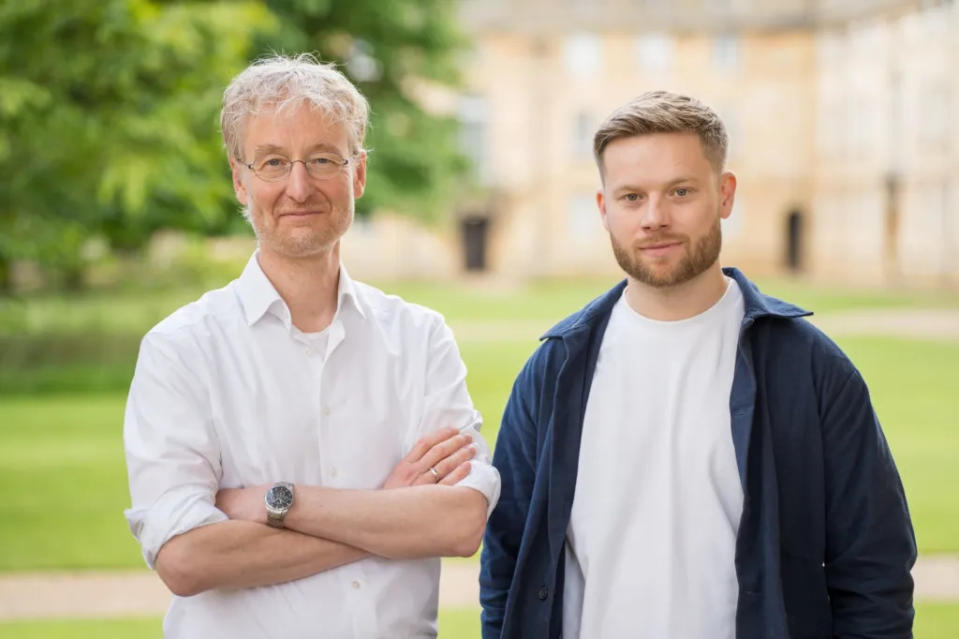The ‘Godfather of AI’ quit Google a year ago—now he has emerged out of stealth to back a startup promising to use AI for carbon capture
Since dramatically quitting Google last year, Geoffrey Hinton, known better as the “Godfather of AI,” has been a harbinger of doom for how the emerging tech could affect humanity.
But more than a year later, the former Googler and AI naysayer is back to betting on the technology’s ability to transform the world for the better.
Cambridge-founded CuspAI has emerged from stealth with a $30 million seed funding round.
The company will help users design next-gen building materials through deep learning and molecular simulation, streamlining design. In a major coup, it has won the approval of Hinton, a prominent AI skeptic.
Hinton has agreed to serve as an advisor on CuspAI’s board. His statement accompanying the announcement was appropriately conflicted, thanks to the group’s use of a technology that defined Hinton’s life and career.
“Humanity will face many challenges in the coming decade. Some will be caused by AI while others can be solved by AI,” Hinton said.
“I’ve been very impressed by CuspAI and its mission to accelerate the design process of new materials using AI to curb one of humanity’s most urgent challenges—climate change.”

CuspAI emerges from stealth
CuspAI plans to use search engine-style functionalities to identify the properties needed for new building materials on demand, aiding their discovery.
“Imagine a search engine not just for existing materials, but for all potential molecules and materials that could be created,” said Professor Max Welling, co-founder and chief AI officer at CuspAI.
The co-founders hope that in the process, CuspAI can help to offset an emerging ill from the rapid uptake of AI—its prohibitive levels of carbon emissions.
As fellow co-founder and CEO Dr Chad Edwards outlines, CuspAI wants its technology to contribute to the world’s growing carbon capture and storage capabilities.
“The AI revolution is itself creating new challenges, including rapidly increasing energy consumption and carbon emissions from data centers,” Edwards said.
“Our technology can help mitigate this impact by designing materials that efficiently capture carbon dioxide.”
Meta’s chief AI scientist, Yann Le Cun, said the tech giant was planning to partner with CuspAI to accelerate its discovery of new materials for carbon capture.
CuspAI’s $30 million round was led by Hoxton Ventures and had “significant participation” from Basis Set Ventures and Lightspeed Venture Partners.
In 2022, Hoxton raised a $215 million fund to back European startups. It has form for backing successful European growth companies like Deliveroo and Darktrace.
CuspAI’s capital raise is the latest significant investment in AI from a venture capital group in the last 18 months as investors scramble to catch the wave of tomorrow’s growth leaders.
The Godfather returns
Hinton, 76, left his role at Google in May last year with an exclusive interview for the New York Times, in which he appeared to lament his life’s work while warning of AI’s future dangers to humanity.
Since then, Hinton’s press appearances have only seen him double down on this stance.
In an interview with 60 Minutes last October, he suggested rogue AI would learn to manipulate its users by learning the works of Machiavelli and other “political connivances.”
He also worries about AI’s impact on the labor market, telling BBC Newsnight in May that he thought a universal basic income would be required to address the replacement of many “mundane jobs.”
Now, though, it appears Hinton sees promise in CuspAI’s use of the technology to at least combat climate change, even as he meditates on the technology’s other existential threats.
This story was originally featured on Fortune.com

 Yahoo Finance
Yahoo Finance 